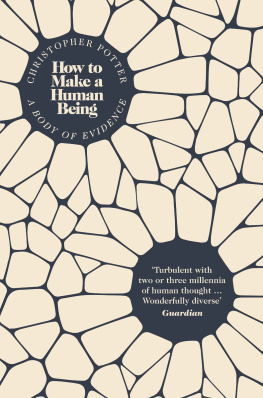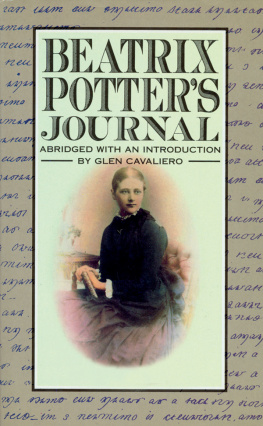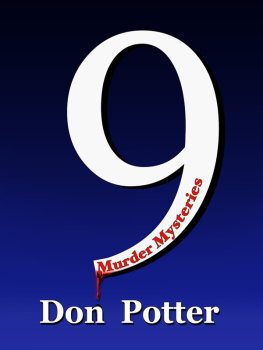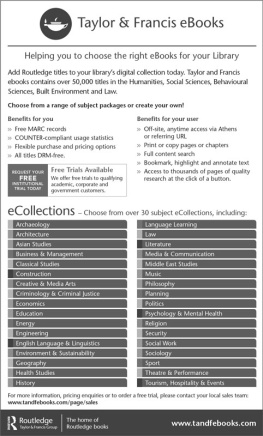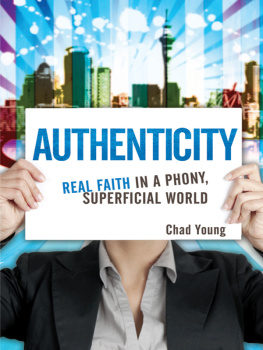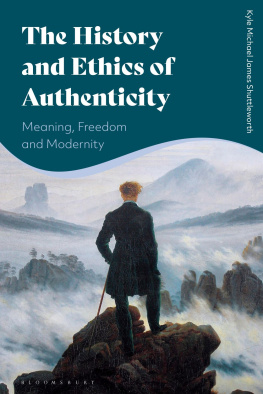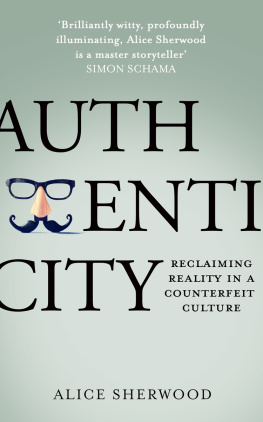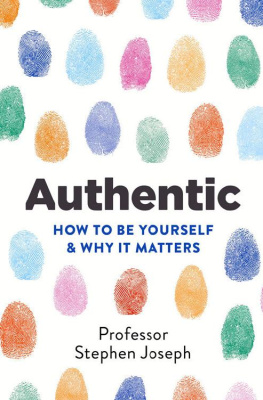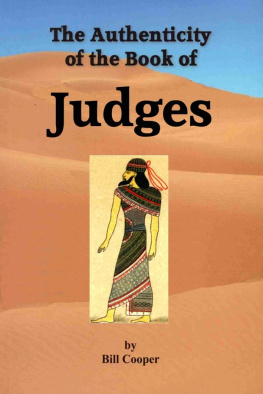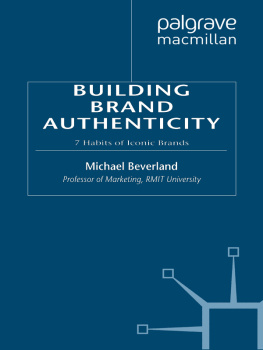Potter - The authenticity hoax: how we get lost finding ourselves
Here you can read online Potter - The authenticity hoax: how we get lost finding ourselves full text of the book (entire story) in english for free. Download pdf and epub, get meaning, cover and reviews about this ebook. City: Toronto, year: 2010, publisher: McClelland & Stewart, genre: Religion. Description of the work, (preface) as well as reviews are available. Best literature library LitArk.com created for fans of good reading and offers a wide selection of genres:
Romance novel
Science fiction
Adventure
Detective
Science
History
Home and family
Prose
Art
Politics
Computer
Non-fiction
Religion
Business
Children
Humor
Choose a favorite category and find really read worthwhile books. Enjoy immersion in the world of imagination, feel the emotions of the characters or learn something new for yourself, make an fascinating discovery.

The authenticity hoax: how we get lost finding ourselves: summary, description and annotation
We offer to read an annotation, description, summary or preface (depends on what the author of the book "The authenticity hoax: how we get lost finding ourselves" wrote himself). If you haven't found the necessary information about the book — write in the comments, we will try to find it.
The authenticity hoax: how we get lost finding ourselves — read online for free the complete book (whole text) full work
Below is the text of the book, divided by pages. System saving the place of the last page read, allows you to conveniently read the book "The authenticity hoax: how we get lost finding ourselves" online for free, without having to search again every time where you left off. Put a bookmark, and you can go to the page where you finished reading at any time.
Font size:
Interval:
Bookmark:
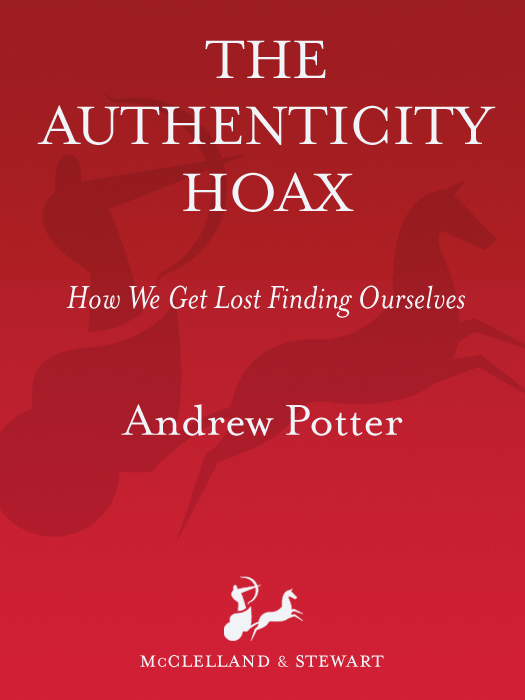
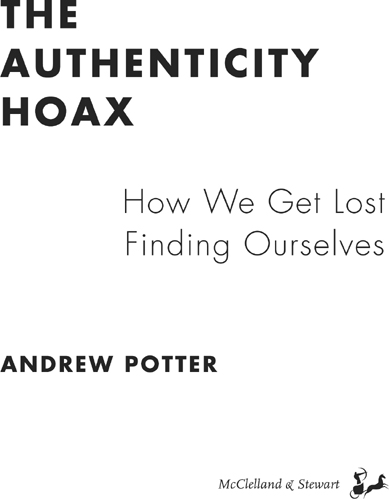
For Stephanie, Marnie, and Matthew
Plutt la barbarie que lennui.
THOPHILE GAUTIER
Truth equals money.
50 CENT
But now being lifted into high society,
And having pickd up several odds and ends
Of free thoughts in his travels for variety,
He deemd, being in a lone isle, among friends,
That, without any danger of a riot, he
Might for long lying make himself amends;
And, singing as he sung in his warm youth,
Agree to a short armistice with truth.
Lord Byron
ONE
TWO
THREE
FOUR
FIVE
SIX
SEVEN
EIGHT

I N THE SUMMER OF 2008, A TWENTY-EIGHT-YEAR-OLD FRENCH engineer from Brittany named Florent Lemaon, his wife, Chlo, and their three-year-old son, Colin, embarked on what looked to be the trip of a lifetime. After quitting their jobs, the Lemaons set sail from France in a boat into which they had poured their life savings, a restored yacht named the Tanit. Their ultimate destination was Zanzibar, an archipelago off the coast of Tanzania, and to help them sail around the clock, the Lemaons had picked up another couple. As the Tanit and its crew left Egypt and headed down into the Indian Ocean, they spoke to a French frigate that strongly advised them to turn back from a journey that would take them into some of the most lawless, pirate-infested waters in the world.
The undaunted adventurers continued on their way, and over the weekend of April 4, 2009, they were seized by Somali pirates who were intent on taking their five hostages back to the mainland, where they would be harder to find and, hence, easier to ransom. After negotiations with the pirates broke down, French commandos launched a rescue operation during which four of the Tanit crew were rescued. Mr. Lemaon himself was killed during the ensuing gunfight, perhaps by friendly fire as he tried to duck down into the yachts cabin.
Why did they continue their voyage, despite being repeatedly warned about the dangers? On a blog the couple kept of their trip, the Lemaons wrote: The danger is there and has indeed become greater over the past months, but the ocean is vast. The pirates must not be allowed to destroy our dream. And their dream, as they told everyone who would listen, was to protect their son, Colin, from the depraved elements of the modern world, especially the sterile government and its officious bureaucracy, the shallowness of the mass media, and the meaninglessness of consumer society and its destructive environmental impact. We dont want our child to receive the sort of education that the government is concocting for us, Florent told a French newspaper. We have got rid of the television and everything that seemed superfluous to concentrate on what is essential.
The story of a disillusioned young man looking for meaning outside the iron cage of modern life was a clich even by the time Henry David Thoreau went off to Walden Pond, and Florent Lemaon is not the first person to get himself killed while searching for a leaner and less complicated mode of existence. But there is something especially pathetic and pointless about this case, even discounting Florent and Chlos outrageous decision to bring their young son on such a trip. Civilization has its drawbacks, but if there is one unambiguous good that it provides it is safety, security, and the rule of law. It is one thing to look to escape into nature, something else entirely to head deliberately into a lawless realm of high-seas piracy at a time when the papers were full of stories about ships being taken and crews being held hostage for millions of dollars in ransom. Only someone in the grip of a seriously misguided ideological quest could imagine that taking his family through the Gulf of Aden is a more essential form of existence, or a reasonable and virtuous alternative to the life of a well-paid professional in contemporary France.
Yet for all their recklessness, there is nothing remotely eccentric about what Florent and Chlo Lemaon were searching for. The object of their desire, the essential core of life, is something called authenticity, and finding the authentic has become the foremost spiritual quest of our time. It is a quest fraught with difficulty, as it takes place at the intersection of some of our cultures most controversial issues, including environmentalism and the market economy, personal identity and consumer culture, and artistic expression and the meaning of life.
One widely accepted view is that it is impossible to build an authentic personal identity out of the cheap building blocks of consumer goods, while an essential part of living authentically involves treading softly upon the earth and leaving as small a footprint as possible. When it comes to personal fulfillment, many of us subscribe to the idea that the self is an act of artistic creation, and living a meaningful, creative life is impossible within the confines of the modern world. And so many of us seek a more authentic form of life outside of modernity or in opposition to it, a quest that is in many ways as old as the Romantic turn that arose in reaction to the Enlightenment.
Yet too often for comfort, the search for the authentic is itself twisted into just another selling point or marketing strategy, and once we appreciate the full implications of this, there is a real danger that cynicism will quickly set in: everyone is working an angle, everyone is looking to make a buck. Once we start down this path, it isnt long before we reach the same conclusion as Florent and Chlo Lemaon society is corrupt, commerce is alienating, and the whole system should be abandoned, if not completely destroyed.
We can tie ourselves into knots over this, but the fact is, the relationship between the stuff we buy and who we are, and the broader relationship among consumer culture, artistic vision, and the authentic self, is fraught with bad arguments and bad faith, and the usual themes and oppositions (between genuine needs and false wants, or between the shallowness of a branded identity and the depths of the true self) are too crude to be helpful.
We need a new approach, one that takes seriously our desire for an authentic, meaningful, ecologically sensible life, but that recognizes that the market economy, along with many other aspects of the modern world, are not evils, even necessary ones, but are instead a rich and vibrant source of value that we would not want to abandon, even if it were possible.
We live in a world increasingly dominated by the fake, the prepackaged, and the artificial. Whichever way we turn we are beset by outrageous advertising, lying politicians, and fraudulent memoirists. Some of us live in cookie-cutter suburban developments, others in gentrified urban neighborhoods almost indistinguishable from theme parks. We eat barely nutritious fast food, watch scripted reality television shows, and take prepackaged vacations complete with prepackaged memories. Meanwhile, we continuously find refuge on the Internet, where we spend enormous amounts of time hanging out on Facebook messaging our friends or wandering around virtual environments like Second Life or World of Warcraft, interacting with the avatars of people weve never actually met and couldnt recognize if we did.
Font size:
Interval:
Bookmark:
Similar books «The authenticity hoax: how we get lost finding ourselves»
Look at similar books to The authenticity hoax: how we get lost finding ourselves. We have selected literature similar in name and meaning in the hope of providing readers with more options to find new, interesting, not yet read works.
Discussion, reviews of the book The authenticity hoax: how we get lost finding ourselves and just readers' own opinions. Leave your comments, write what you think about the work, its meaning or the main characters. Specify what exactly you liked and what you didn't like, and why you think so.

